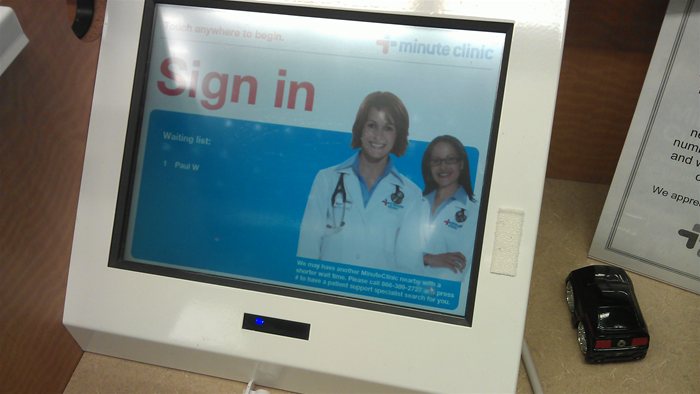The BHUCC is offered to any adult 18+ in the Kansas City Metro Location. Offered services include: Psychiatric Evaluation & Medication, Nursing Assessment, Behavioral Health Evaluation, Short-Term Case Management, Recommendation to Needed Resources, Referral to Long-Term Solutions, Interim Services if Required 1. Our front desk staff or Counselor Technician will complete the Triage and Registration https://canvas.instructure.com/eportfolios/119948/zanegbcg162/More_About_How_Does_Jackson_Clinic_Compared_To_Humboldt_Manor_Use_Electronic_Health_Records process. 2. Our nurse will complete a brief nursing evaluation and review present or previous medications. 3. Our therapists will complete a short behavioral health assessment to evaluate your existing requirements and history of behavioral health treatment and after that make treatment suggestions (What is a rural health clinic hrsa). 4. If required, our Psychiatrist or Nurse Practitioner will complete a brief psychiatric or medication evaluation.

5. Our Outreach Case Supervisor will fulfill with you to evaluate your current requirements concerning resources and referrals. They will help in linking you to a long-term medication company or other behavioral health service provider if needed. They will continue to provide interim services till you are connected with your brand-new supplier.
NYC Health + Hospitals/Bellevue uses comprehensive psychological health services: Inpatient Outpatient Emergency situation Our renowned programs combine: Medical excellence Academic scholarship, and Research activities. Our objective is to bring back clients as important, healthy individuals in their families and neighborhoods. Adult Inpatient Services at New York City Health + Hospitals/Bellevue consist of: Eight inpatient systems A 20-bed Medical Detoxification Unit for patients struggling with drug abuse Multidisciplinary care groups consisting of physicians, nurses, social employees, psychological health therapists and activities therapists Personalized treatment strategies that might consist of specific, group, and medication therapy. Whenever possible, member of the family or loved ones are included in the treatment preparation.

The Mind-Body Program supplies holistic services to people who have medical conditions that can gain from mindfulness techniques. Specialized programs: Extensive Personality Disorder Program (IPDP): evaluation and treatment for clients struggling with character conditions Geriatric Psychiatry Center: for individuals over the age of 65. Services are offered in both English and Spanish and consist of assessments, drug treatment, private and group treatment and social services. Bi-Lingual Treatment Program thorough psychiatric services for Spanish-speaking or Chinese-speaking people Psychopharmacology Clinic Helpful Case Management Program for psychologically ill adults who are homeless or at impending danger of becoming homeless Assisted Drug Rehab Facility Outpatient Treatment Program ongoing, court-mandated outpatient services Assertive Neighborhood Treatment (ACT) Program: detailed community-based take care of people with an extreme and persistent mental disorder.
Adult Substance Abuse Provider at NYC Health + Hospitals/Bellevue include: A model of care that highlights: remaining sober occupation assessment and rehab, and socializing in order to guarantee patient's restoration as a vital member of the community. Methadone Treatment Program (MTP): serves clients seeking sobriety and self-reliance from addiction through the usage of methadone. Program includes: Intensive medical and psychiatric treatment Continuous drug therapy, and Vocational rehabilitation. Chemical Dependency Outpatient Program addresses addiction with the usage of: Medication treatment Socialization, and Individual and group treatment. Healing Program focuses mainly on day treatment of patients with a dual diagnosis of mental disease and compound abuse.
Not known Details About How To Start Business In Opening A Health Clinic
For over 80 years, NYC Health + Hospitals/Bellevue has been a pioneer in the field of child mental health - What is a community health clinic. In 1923, we opened the nation's very first kids's psychiatric inpatient service situated in a basic health center, and followed this innovation in 1937 by opening the world's first adolescent inpatient unit. Operating in close collaboration with the distinguished NYU Child Research study Center, our scientific excellence is strengthened through an energetic integrated mentor and research study program. We are dedicated to the provision of client- and family-centered, evidence-based treatment. The Department of Child and Teenager Psychiatry provides the following medical services: Inpatient care: A 15-bed system for children, ages 4 through 12 2 15-bed systems for teenagers, ages 12 through 18 Consultation Intermediary Service to the Pediatrics inpatient service Outpatient care: Child and adolescent mental health center certified by the New york city State Office of Mental Health Continuing day treatment program for kids and adolescents (25 slots) Integrated Mental Health Program in Pediatrics Ambulatory Care Emergency situation services: State-certified Kid and Adolescent Comprehensive Psychiatric Emergency program, which comprises an Assessment Unit, a 6-bed Extended Observation System (EOU), an Interim Crisis Center, and access to Mobile Crisis services.
Public School 35, a Special Education school serving psychiatrically ill kids and adolescents, lies on-site at New York City Health + Hospitals/Bellevue and offers instructional services to clients on our inpatient systems, at the Adolescent Day Health Center, and in our Mental Health clinic (How can health clinic reach out to baby boomers).
To the extent that homeless individuals have actually been able to obtain necessary healthcare services, they have relied on emergency clinic, clinics, hospitals, and other facilities that serve the poor. Indigent individuals (with or without a house) experience lots of challenges in obtaining health care. For homeless people there are extra barriers. Recognition of the special health care requirements of homeless people has actually motivated the advancement of unique services for them. In observing and explaining these health care and health care-related services, one should bear in mind the heterogeneous nature of the homeless population, along with the structure of the communities in which such services have actually developed.
Similarly, attempts to provide health and psychological health care services, despite variations in such areas as history, funding levels, and nature of assistance, also have specific typical aspects. They arose in reaction to a crisis instead of developing as part of a well considered strategy. They generally brought services to homeless people rather than awaiting them to come in; significantly, they rely on public funding due to the fact that the issue has actually grown beyond a level that the economic sector can support. The function of this chapter is to explain programs that look for to bring general health and psychological health care services to homeless individuals.
Although the websites are Additional hints not agent of the whole universe of programs for the homeless, they were picked to include the broadest series of programs possible and to be geographically distributed throughout the nation. In studying health care and associated services for homeless individuals, the committee looked for to analyze a broad range of services developed over a time period, rather than to focus just on specialized services or services that have been developed recently. However, what the committee observed were discrete services and programs. At no time did the committee encounter anything that could be properly called a" system" of services. However, one should also look at individuals who are homeless. William Breakey (in press) has recognized characteristics of homeless people that affect the arrangement of treatment and the planning of healthcare services: Daily Activities, Some homeless individuals live under circumstances that present particular problems for developing a treatment plan. For numerous, it might be tough to keep a supply of medication while living on the street. For an alcoholic trying to remain sober, a homeless presence may present a lot of opportunities for drinking. Some former clients grumble that neuroleptic medications, recommended for a schizophrenic health problem, might make them too sleepy and disrupt their alertness versus the threats on the streets (What time does troy university health clinic open).